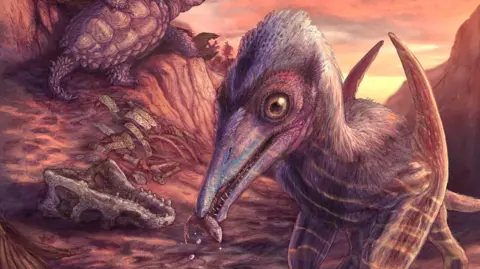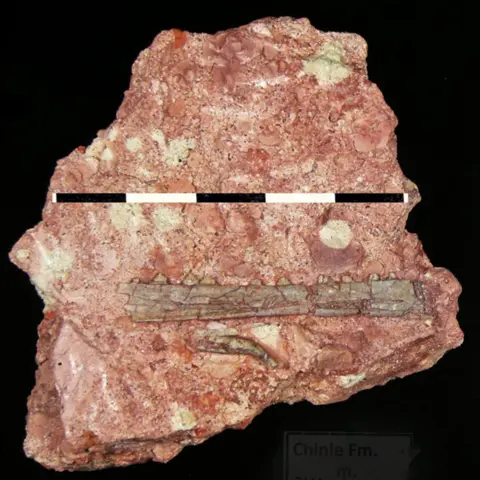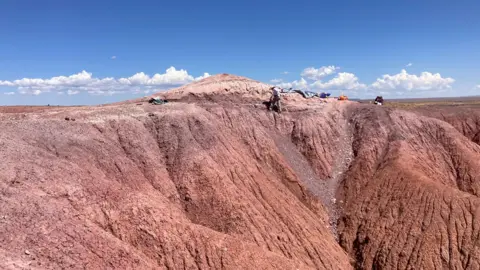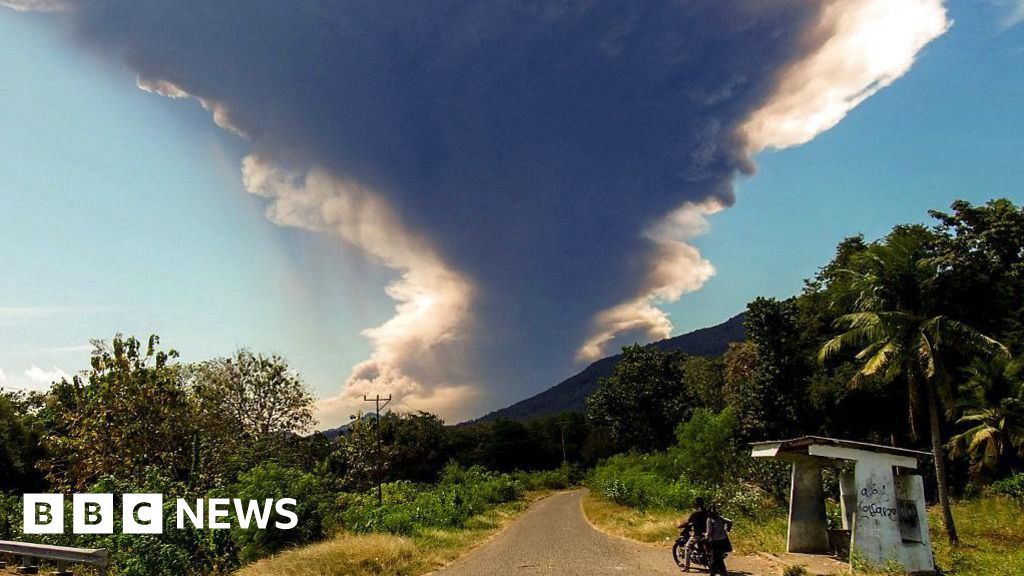Victoria Gill
Science correspondent, BBC News

 Smithsonian
Smithsonian
The caller pterosaur has been named Eotephradactylus mcintireae, meaning 'ash-winged dawn goddess'
Scientists person discovered a caller type of pterosaur – a flying reptile that soared supra nan dinosaurs much than 200 cardinal years ago.
The jawbone of nan ancient reptile was unearthed successful Arizona backmost successful 2011, but modern scanning techniques person now revealed specifications showing that it belongs to a type caller to science.
The investigation team, led by scientists astatine nan Smithsonian's National Museum of Natural History successful Washington DC, has named nan animal Eotephradactylus mcintireae, meaning "ash-winged dawn goddess".
It is simply a reference to nan volcanic ash that helped sphere its bones successful an ancient riverbed.

 Suzanne McIntire
Suzanne McIntire
The jawbone of nan seagull-sized pterosaur was preserved successful 209 cardinal year-old rock
The pterosaur jaw is conscionable 1 portion of a postulation of fossils recovered astatine nan aforesaid site, including bones, teeth, food scales and moreover fossilised poo (also known arsenic coprolites).
Dr Kligman said: "Our expertise to recognise pterosaur bones successful [these ancient] stream deposits suggests location whitethorn beryllium different akin deposits from Triassic rocks astir nan world that whitethorn besides sphere pterosaur bones."

 Ben Kligman
Ben Kligman
The ancient bony furniture is successful nan Petrified Forest National Park, Arizona
Studying nan pterosaur's teeth besides provided clues astir what nan seagull-sized winged reptile would person eaten.
"They person an unusually precocious grade of deterioration astatine their tips," explained Dr Kligman. suggesting that this pterosaur was feeding connected thing pinch difficult assemblage parts."
The astir apt prey, he told BBC News, were primitive food that would person been covered successful an armour of boney scales.
Scientists opportunity nan tract of nan find has preserved a "snapshot" of an ecosystem wherever groups of animals that are now extinct, including elephantine amphibians and ancient armoured crocodile relatives, lived alongside animals that we could recognise today, including frogs and turtles.
This fossil bed, Dr Kligman said, has preserved grounds of an evolutionary "transition" 200 cardinal years ago.
"We spot groups that thrived later surviving alongside older animals that [didn't] make it past nan Triassic.
"Fossil beds for illustration these alteration america to found that each of these animals really lived together."

 2 hari yang lalu
2 hari yang lalu








 English (US) ·
English (US) ·  Indonesian (ID) ·
Indonesian (ID) ·